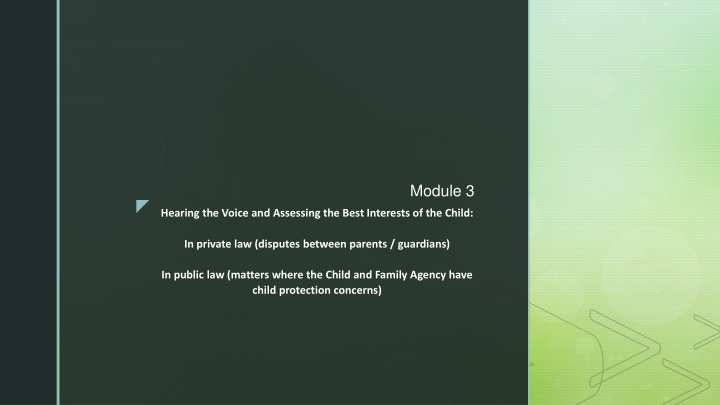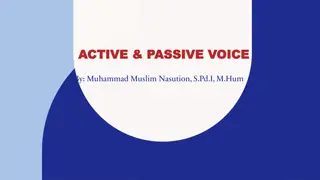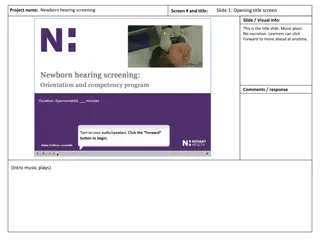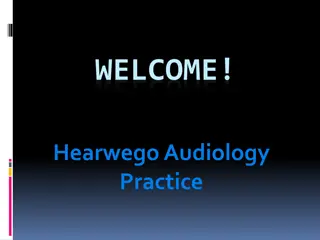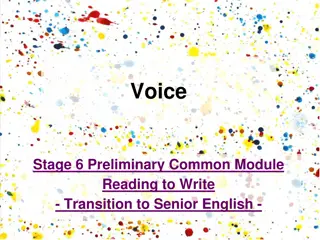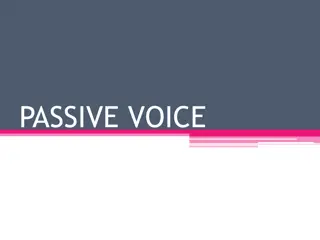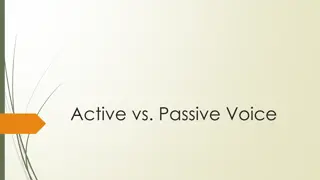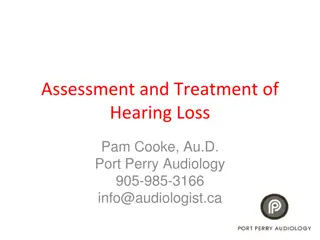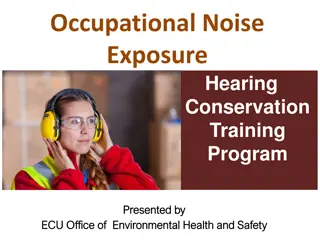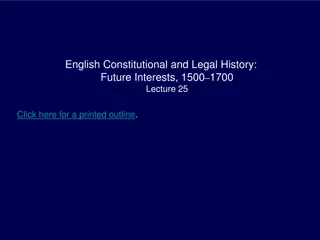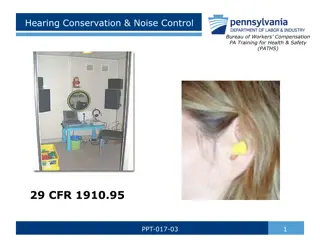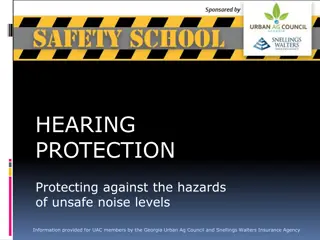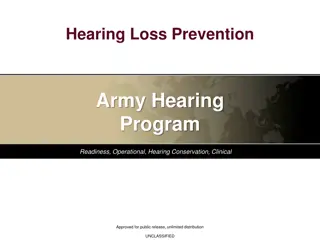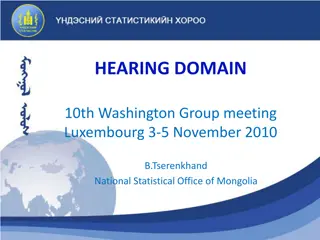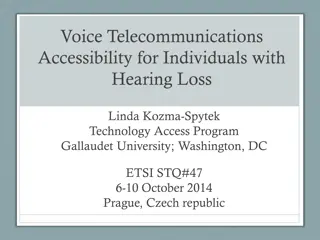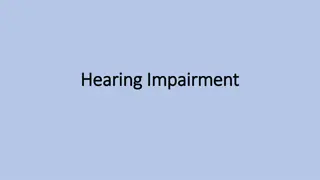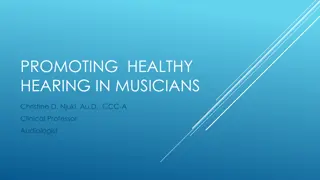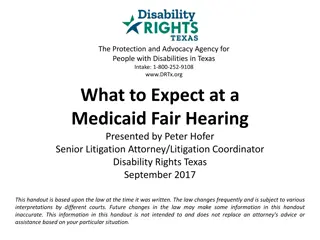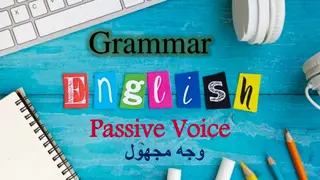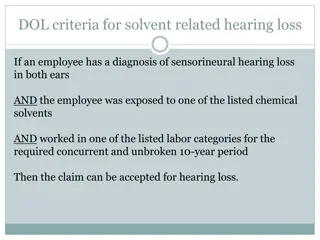Hearing the Voice and Assessing Best Interests
Module 3 delves into private and public law aspects, emphasizing the importance of considering a child's view and best interests in legal disputes. Explore the roles of the Child and Family Agency, the Constitution, and expert reports under the Children and Family Relationships Act.
Download Presentation

Please find below an Image/Link to download the presentation.
The content on the website is provided AS IS for your information and personal use only. It may not be sold, licensed, or shared on other websites without obtaining consent from the author.If you encounter any issues during the download, it is possible that the publisher has removed the file from their server.
You are allowed to download the files provided on this website for personal or commercial use, subject to the condition that they are used lawfully. All files are the property of their respective owners.
The content on the website is provided AS IS for your information and personal use only. It may not be sold, licensed, or shared on other websites without obtaining consent from the author.
E N D
Presentation Transcript
Module 3 Hearing the Voice and Assessing the Best Interests of the Child: In private law (disputes between parents / guardians) In public law (matters where the Child and Family Agency have child protection concerns)
Learning Outcomes PRIVATE LAW Explain how a child s view may be heard and their best interests considered in a dispute between the child s parents/guardians. PUBLIC LAW Explain how a child s view may be heard and their best interests considered in a case involving the Child and Family Agency (Tusla) where child protection concerns have arisen.
What is Private and Public Law? Definition: Private law governs relationships between individuals such as contracts and the law of obligations. Private couples Public law is law governing the relationship between individuals (such as citizens and companies) and the state. Child and Family Agency
Article 42 A of the Constitution Children s proceedings are unlike any other civil litigation in this land. I mean, where else do you have the principal party, about whom the action is and the orders will affect, who doesn t have an audience? Hearing Children in Family Law Proceedings, Fernando Michelle [2014] Precedent AULA 49; 124
Article 42A of the Constitution Referendum on the Rights of the Child was held in Ireland in October 2012. Following from that result the 31stAmendment to the Constitution of Ireland was ratified. Article 42A, was inserted into the Constitution and provided that the State recognises and affirms the natural and imprescriptible rights of all children and shall, as far as practicable, by it s law protect and vindicate those rights .
Reports on Foot of sections 32(1)(a) and 32(1)(b) of the Children and Family Relationships Act, 2015 What is a section 32 Report? This provides for the power of a court to make directions for the purpose of procuring an expert report on any question affecting the welfare of the child or to appoint an expert to determine and convey a child s views. Since the introduction of the Children and Family Relationships Act, 2015 the court are under a positive obligation to take the child s views into account.
Reports on Foot of sections 32(1)(a) and 32(1)(b) of the Children and Family Relationships Act, 2015 Section 32 Reports can: Either purely convey the wishes of the child; OR Comment of the welfare of the child. Also provides for the report to be given to not only the parties to the proceedings (parents) but also the child.
Reports on Foot of 47 of the Family Law Act, 1995 Previously only available in Circuit or High Court proceedings. Usually carried out by Child Psychologist. Ordered by the Judge and aim to bring the wishes and views of the children to the attention of the court. Meet with siblings, school teachers/child care and anyone else of importance in the child s life/ Provide a report with insight into the family structure and set up for the Judge and also professional recommendations on access and custody.
Reports on foot of Section 20 of the Child Care Act, 1991 Section 20 of the Child Care Act 1991 provides that a Court can ask the CFA to carry out an investigation of the child s circumstances and report back to the Court. The report should set out: (i) whether the CFA is making any applications in respect of the child and its reasons for so deciding; (ii) any service or assistance it has provided, or it intends to provide, for the child and his or her family; (iii) any other action that it has taken, or proposes to take, with respect to the child.
The Judge s Role When does a Judge speak with a child? When no funding available for a report to be prepared Age and level of maturity of the child Wish of the child or the Judge.
The Judge s Role Hearing a child s voice directly must be taken in the context of the age and level of maturity. Child s wishes and feelings trumped by his welfare. Re: S I want to leave my school. It s much more strict than it used to be. Me and my friends get picked on for things that never used to matter. Well, if wishes and feeling rule, he would be walking away from school. But fortunately, they do not and children of his age have to have their lives regulated by adult judgement.
Judge s Role A court considering whether to call a child as a witness would have to weigh the advantages that it would bring to the determination of the truth against the damage it might do to the welfare of that or any other child.
Obligations of the Assessor Provide their C.V Details of the assessment, including particulars in relation to the likely meetings, Who the assessor wishes to meet, Whether the meetings are with parents and child/children) and/or the child/children) alone, and How the assessor intends to communicate with the parties, and related matters. Information and documentation that the parties should provide, including from third parties or institutions (such as school or medical reports).
Access to the Contents of Experts Reports Both section 47 and section 32 provide that reports prepared under the relevant sections shall be provided to the parties. Although there has been considerable controversy over that subsection, section 32(4) provides: A copy of a report under section (1)(a) may be provided in evidence to the proceeds and shall [emphasis added] be given to (a) the parties to the proceedings concerned and (b) subject to subsection (5), if he or she is not a party to the proceedings, to the child concerned. However in practice the parties are not usually permitted to receive a copy of the report.
The voice of the child v the best interests of the child This right of the voice of the child to be heard however does not mean that the child s view will be determinative of the matter, Re E (A Minor)(Child Abuse: Evidence) [1991] 1 FLR 420 at 447H Scott- Baker J observed: "Of course what any child says must be listened to and taken seriously, but the professionals must be very careful not to prejudge the issue". Most children would not want their views to be the final say in proceedings. It has been litigated that attaching too much weight to the views of the child may in fact run contrary to the European Convention on Human Rights
PUBLIC LAW CHILD CARE ACT, 1991 Duty of Tusla - the Child and Family Agency Under the Child Care Act 1991 Act, as amended by the Child and Family Agency Act 2013, Tusla - the Child and Family Agency has a statutory duty to promote the welfare of children who are not receiving adequate care and protection. The definition of a child is a person under 18 years of age.
Child Care Act, 1991 Under the 1991 Act there are a number of procedures which Tusla can use for children who are at risk or who are in need of care. Tusla may apply to the courts for a number of different orders which give the courts a range of powers including decisions about the kind of care, and the access to the child or children for parents and other relatives: Emergency care orders Care orders Supervision orders Interim special care order - maximum of 28 days but may be extended Special care order - a period of between 3 and 6 months but may be extended. In general, the various orders involve the child being taken into care by Tusla. A supervision order however, involves the child being visited and monitored in their own home by Tusla..
Guardian Ad Litem On Application to the court by either a parent of the CFA or by it s own Motion the Court can appoint a Guardian Ad Litem. What is the role of a Guardian Ad Litem? A guardian ad litem is an independent person appointed by the court to represent the wishes and interests of a child in specified court proceedings. When a Guardian Ad Litem is appointed. At present the appointment of a GAL is discretionary but new legislation is on the way.
Appointing a Guardian Ad Litem and their role. A Guardian Ad Litem is independent from social services (CFA) and they will act in the child s best interests. The Guardian Ad Litem gives recommendations to the Court about what they think is in the child s best interests. If the Guardian Ad Litem disagrees with the CFA, they may suggest an alternative to them. The Guardian Ad Litem will generally arrange to meet with the children the subject of the proceedings at various points throughout the care proceedings. If the child is old enough then the Guardian Ad Litem will speak to them about what is happening and consider their level of understanding and what they would like to happen.
Access to Guardian Ad Litem Reports In Camera Rule: In camera is a Latin phrase meaning in chambers (referring to the Judge s chambers). The purpose of the in camera rule is to protect the identity of the parties and any child to whom family law or childcare proceedings relate. Where the in camera rule applied, you cannot give anyone copies of Court documents unless the in camera rule is lifted by the court allowing you to do so.
Access to Guardian Ad Litem Reports Where the in camera rule applies, you cannot give anyone copies of Court documents unless the law allows you to do so. Section 40(8) allows the Court to order copies of court documents, information, or evidence in the proceedings to be disclosed to third parties if necessary to protect the legitimate interests of a party or other person affected. If a third party requests court documents or information in relation to proceedings that are covered by the in camera rule, you must refuse to give the information or supply the documents, unless the person is on the list of people who can be supplied the information or the Court has approved of you doing so.
Voice of the Child v the Best Interests of the Child There is a lot of focus on the voice of the child and empowering and including children in proceedings affecting them however this must be balanced against the welfare of the child and protecting them from acrimonious and potentially emotionally damaging proceedings.
Oversight of Guardian Ad Litem The existing provision for the appointment of a Guardian Ad Litem is largely unregulated. There is new draft legislation already being prepared however to amend the 1991 Act and finally regulate the existing ad hoc system of GAL appointments and to extend the GAL system so that it benefits the greatest number of children and young people and to ensure a high quality and sustainable service provided into the future.
Questions Emily Sherlock Managing Solicitor Law Centre (Cavan) Stephanie Coggins Managing Solicitor Law Centre (Monaghan)
